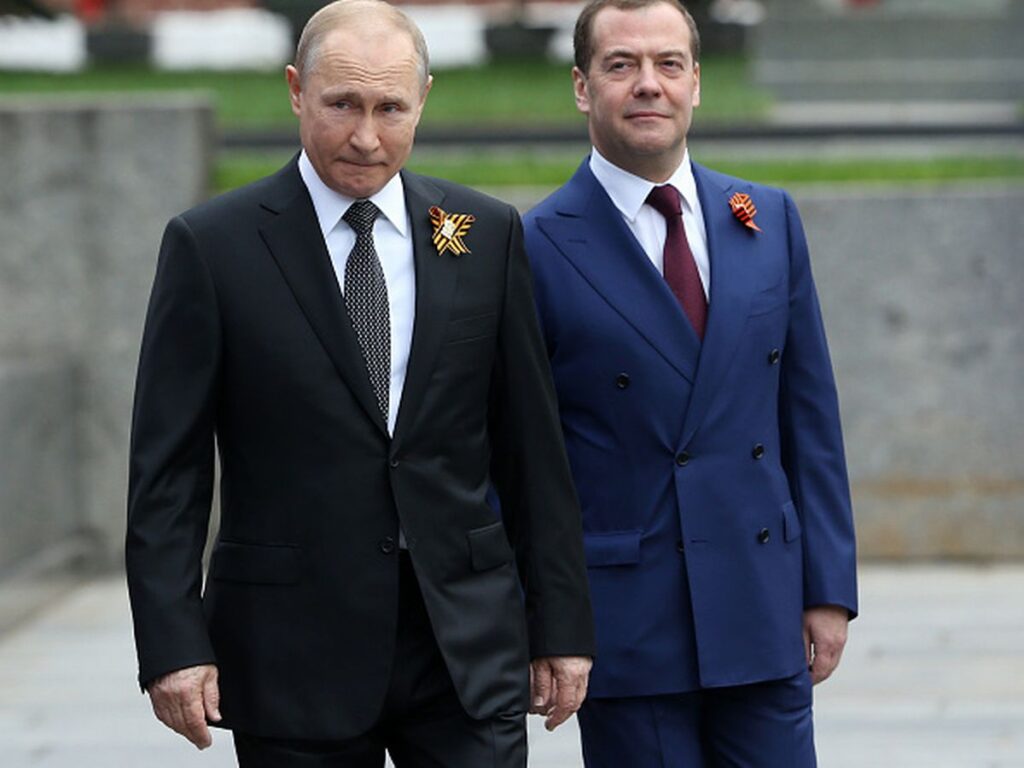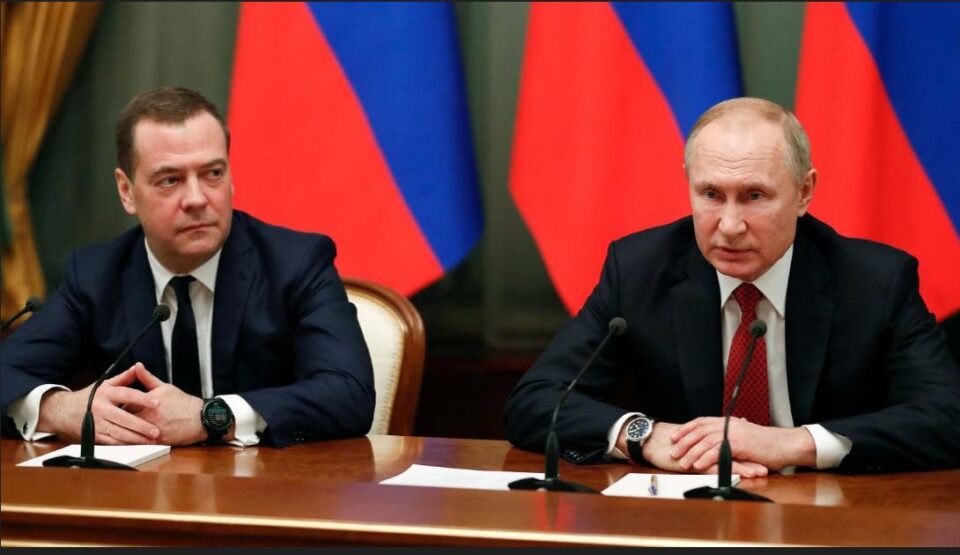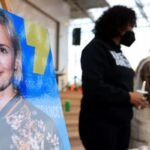If Russia loses the Ukraine, Medvedev threatens nuclear war
A former Russian president and Putin friend issues a warning to Ukraine’s Western allies before a crucial summit in Germany.
Those close to Vladimir Putin’s outspoken former president of Russia, Dmitry Medvedev, have warned NATO that a defeat for Moscow in the Ukraine may lead to a nuclear conflict.
Medvedev, who serves as the vice chairman of Putin’s influential security council, stated in a message on the Telegram messaging app that “the defeat of a nuclear power in a conventional battle may spark a nuclear war.”
President Medvedev, who in office from 2008 to 2012, asserted that “nuclear powers have never lost significant wars on which their survival rests.”
Additionally, he stated that the military alliance and other Western defense leaders, who are expected to gather on Friday at the German air base of Ramstein to discuss support for Ukraine, should think about the risks associated with their course of action.
Medvedev’s comments were swiftly endorsed by the Kremlin, which declared that they were fully in line with Moscow’s ideals.

According to Moscow’s doctrine, a nuclear strike is possible “when the basic survival of the state is challenged” and follows “aggression against the Russian Federation with conventional weapons.” As the most outspokenly hawkish member of Putin’s inner circle, 57-year-old Medvedev has changed his image from the reformist who was eager to collaborate with the United States to liberalize Russia.
The prospect of nuclear catastrophe and derogatory remarks about the West have been frequent themes in Medvedev’s speeches since Russia invaded Ukraine on February 24 of last year, nearly exactly one year ago.
The two nuclear superpowers that hold the majority of the world’s warheads are by far Russia and the United States. The Federation of American Scientists estimates that Russia has 5,977 nuclear weapons, compared to the US’s 5,428, China’s 350, France’s 290, and the UK’s 225.
In terms of using nuclear weapons, Putin, as president, has final say in Russia.

Washington has not specified what it would respond if Putin gave the command for the first nuclear war since the United States launched the first atomic bomb attacks on the Japanese towns of Hiroshima and Nagasaki in 1945.
Russia has nuclear weapons that are superior to NATO’s in Europe, notwithstanding NATO’s supremacy over Russia in terms of conventional military strength.
Putin has declared that Moscow will use all available means to defend itself and has described Russia’s “special military operation” in Ukraine as an existential conflict with an aggressive and haughty West.
Since the Cuban Missile Crisis in 1962, the invasion of Ukraine by Russia on February 24 has resulted in one of the deadliest conflicts in Europe since that war.
The invasion of Ukraine has been denounced by the United States and its allies as an attempt by Russia to seize Ukrainian territory by force, and Ukraine has sworn to fight until the final Russian soldier has left its borders.
Since his ominous statement on New Year’s Eve, in which he claimed that the West is Russia’s real foe in its conflict with Ukraine, Putin has made it clear multiple times that his country will not yield.
In addition to appointing his top general to lead Russia’s war campaign, Putin has sent hypersonic missiles to the Atlantic.
On Wednesday, Putin claimed that one of the key factors in Russia’s expected victory in Ukraine was the country’s robust military-industrial complex, which was increasing production.




